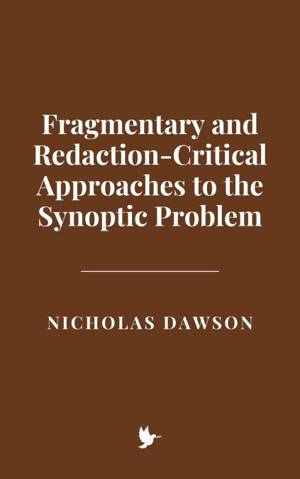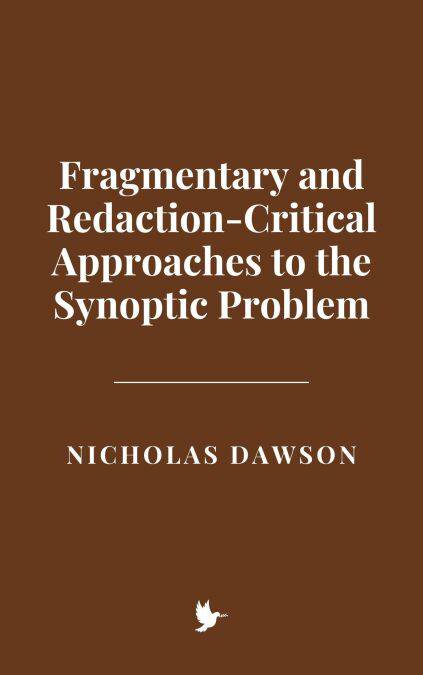
- Afhalen na 1 uur in een winkel met voorraad
- Gratis thuislevering in België vanaf € 30
- Ruim aanbod met 7 miljoen producten
- Afhalen na 1 uur in een winkel met voorraad
- Gratis thuislevering in België vanaf € 30
- Ruim aanbod met 7 miljoen producten
Fragmentary and Redaction-Critical Approaches to the Synoptic Problem E-BOOK
Nicholas DawsonOmschrijving
This book offers a groundbreaking exploration into one of the most enduring mysteries of biblical scholarship: how the first three Gospels—Matthew, Mark, and Luke—came to be written and interrelated. Moving beyond traditional source theories, this book delves deeply into the dynamic processes of oral tradition, editorial creativity, and theological intention that shaped the earliest Christian narratives about Jesus.
Drawing on cutting-edge research and interdisciplinary insights from textual criticism, oral history, literary analysis, and digital humanities, this work reveals the Gospels as vibrant, living documents—crafted not just from written sources but from fragmentary units of tradition passed down through spoken word and community memory. It uncovers how the evangelists, far from passive transmitters, were skilled authors who shaped these fragments into powerful theological stories that spoke to the struggles, hopes, and faith of their communities.
With detailed case studies, historical context, and rigorous analysis, the book provides readers—whether scholars, clergy, or interested laypeople—with fresh tools for interpreting the Synoptic Gospels. It challenges simplistic assumptions, embraces complexity, and highlights the rich theological diversity and editorial artistry that lie at the heart of the Christian narrative.
Fragmentary and Redaction-Critical Approaches to the Synoptic Problem is essential reading for anyone seeking a deeper, more nuanced understanding of the origins of the New Testament and the transformative story of Jesus as told through its earliest witnesses. This book invites readers on a fascinating journey through history, theology, and literary craft—offering a richly textured portrait of how faith and tradition combined to produce some of the most influential texts in human history.
Specificaties
Betrokkenen
- Auteur(s):
- Uitgeverij:
Inhoud
- Taal:
- Engels
Eigenschappen
- Productcode (EAN):
- 9798231359370
- Verschijningsdatum:
- 2/07/2025
- Uitvoering:
- E-book
- Formaat:
- ePub

Alleen bij Standaard Boekhandel
Beoordelingen
We publiceren alleen reviews die voldoen aan de voorwaarden voor reviews. Bekijk onze voorwaarden voor reviews.









